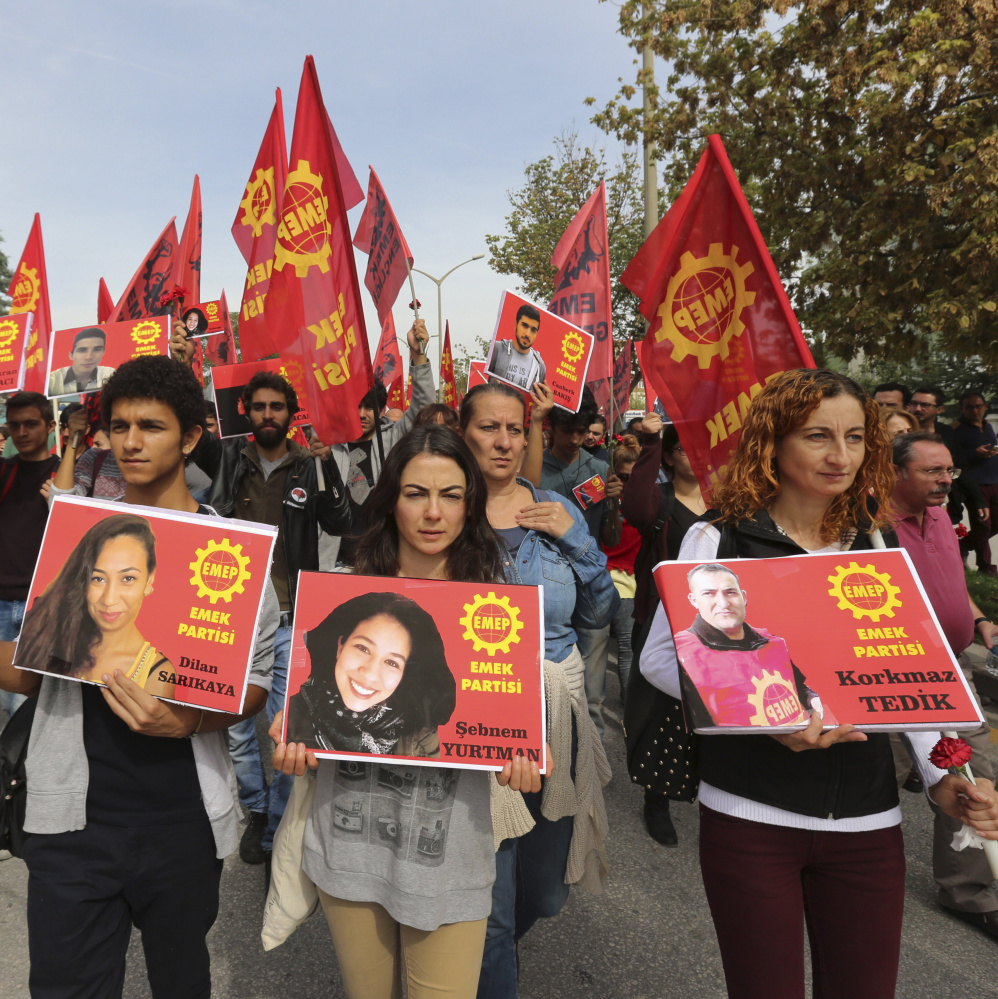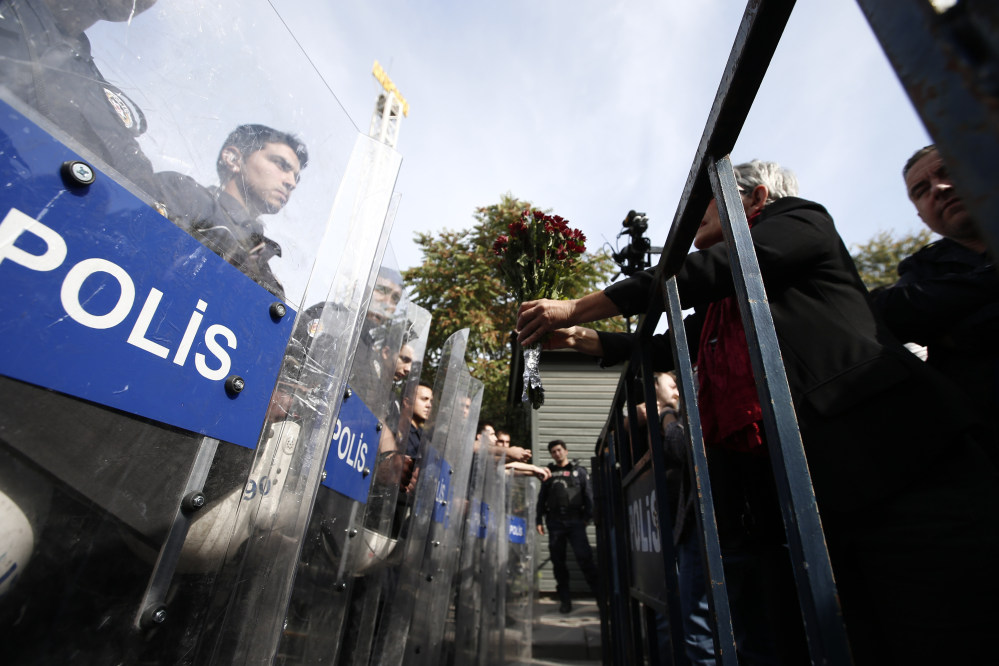ANKARA, Turkey — Crowds of angry mourners marched in central Ankara on Sunday to denounce Turkish authorities a day after nearly 100 peace activists died in the worst terrorist attack in the country’s history.
The twin bombings Saturday, which happened while thousands gathered for a peace rally, shocked the nation but also deepened divisions in a country already roiled by domestic and regional crises.
Turkish officials said they had launched an investigation into the attack, which they called an assault on “the unity of the country.” Opposition lawmakers condemned the authorities for failing to protect the demonstration, which was organized just weeks before the Nov. 1 general elections. At least 95 people were killed and more than 500 injured, the Health Ministry said. But local politicians said the remains of 120 victims had been identified.
On Sunday, members of parliament from Turkey’s ethnic Kurdish minority and pro-Kurdish People’s Democratic Party clashed with police as they tried to lay red carnations at the bomb site. The demonstrators chanted against Turkish President Recep Tayyip Erdogan, who they called a “murderer” in the wake of the attack, media reports said.
Tensions between Turkey’s government and the country’s more than 14 million Kurds have flared in recent months, reigniting a decades-long struggle by ethnic Kurds to win autonomy from the Turkish state. The conflict has destabilized Turkey as it seeks to minimize violent spillover from the war in neighboring Syria.
Some Turkish officials have said Islamic State jihadists are the primary suspects in Saturday’s bombings, while others have suggested that the Kurdistan Workers’ Party (PKK), a militant Kurdish group, was responsible for the attacks.
Turkey on Sunday carried out airstrikes against PKK positions in northern Iraq, where its fighters maintain bases. But the government said the strikes were part of an ongoing campaign to fight Kurdish militancy.
But critics say Turkey’s lax policies at the Syrian border are to blame for the rising violence. Authorities here have for years allowed extremists to cross freely into Syria to take up arms against Syrian President Bashar al-Assad, whose rule Turkey opposes. But the jihadists, who hold swaths of territory in Iraq and Syria, have also established cells and militant infrastructure inside Turkey, security experts say.
In July, Turkey announced it would join the U.S.-led coalition carrying out airstrikes on Islamic State targets in Syria. The move raised fears that the Islamic State, would retaliate by using local recruits to attack Turkish cities.
Send questions/comments to the editors.




Success. Please wait for the page to reload. If the page does not reload within 5 seconds, please refresh the page.
Enter your email and password to access comments.
Hi, to comment on stories you must . This profile is in addition to your subscription and website login.
Already have a commenting profile? .
Invalid username/password.
Please check your email to confirm and complete your registration.
Only subscribers are eligible to post comments. Please subscribe or login first for digital access. Here’s why.
Use the form below to reset your password. When you've submitted your account email, we will send an email with a reset code.